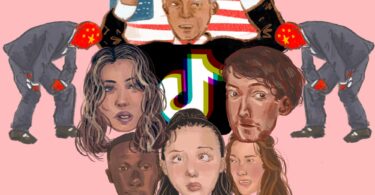Überlingen, GERMANY – Ecuador’s First Lady Maria de Lourdes Alcívar recently shared a dangerous and misleading post on her Instagram account. In 10 different slides, she presented 10 reasons why legalizing abortion disregards human rights.
This post came a few days after the Ecuadorian Justice Commission began drafting changes in the current abortion law.
Here are her 10 arguments and why they are not valid:
1. Alcívar quotes Ecuador’s constitution, which states that the state will recognize and guarantee life since its conception. For that matter, she claims abortion would be an “exception, not a right.”
But the Criminal Code of Ecuador has decriminalized abortion in cases of rape. Ecuador’s Constitution also promises every citizen physical, psychological, and sexual integrity and the right to dignity. We can’t guarantee this in a state where women do not have full control over their own bodies.
2. The first lady claims women who have been raped suffer from trauma and should be taken care of, not be used for socio-political goals. She even goes to say that a woman should be informed about which “correct” alternatives she has.
Here the obvious question remains: Who decides what is correct? It’s a dangerous judgment to receive from the first lady. Yes, women should be informed about all the “correct” options they have. And that includes abortion.
3. “Abortion would worsen the damage upon the women who were raped.”
Can we agree that carrying out an unwanted pregnancy and unwanted childbirth would be far more damaging? The psychological impacts –not to mention the physical strain of pregnancy – implied in involuntarily bringing a child to the world as a result of rape are just devastating to contemplate.
4. Alcívar states that the fetus in a mother’s womb has the right to live, and it’s not part of a women’s body.
Well, yes it is. Deciding to carry a baby has so many implications for a women’s body. It will bring the body to its limit and will force the mother to change her life. It should be up to her if she decides to take this upon herself.
5.The first lady tries to quote another article of the Constitution, saying, “The developing baby has rights, including not to be discriminated because of its origin (rape).”
Article 11 of the Constitution talks about the right not to be discriminated against, but Alcívar’s view is a total misinterpretation of the Constitution. The article also does not mention origin. It talks about not being discriminated against because of being different.
6. Due to the prolonged period (what prolonged period?), the proposed reforms to the law (is this what you mean here?) suggest women should have access to abortion. Alcívar calls it “a cruel murder,” claiming that babies can survive outside the womb as of the 25th week of pregnancy.
This one was such a sore point in the debates surrounding the new laws that on the 15th of January, the time frame stated in the proposal was reduced from the initial 27-week of pregnancy to 25 weeks.
But let’s take a moment to think about this argument. Mentioning “murder” when abortion is healthcare is a tool we have seen used by many politicians, including Donald Trump. People who face the choice of abortion are not doing it for fun, and they don’t need more moral judgments from politicians.
7. “Every health professional has the right to object to a procedure,” Alcívar states, again mentioning Ecuador’s constitution. This argument states that if a health professional does not agree with performing a procedure like abortion, they shouldn’t do it.
Once again, Alcívar took a paragraph and used it to her advantage. Let’s look at the Constitution. It states that someone has the right to object due to their conscience if it doesn’t harm other people. In this case, denying access to abortion would most definitely harm a woman. Laws have to be read until the end if we want to use them as arguments.
8. “Abortion is one of the biggest causes of femicide.”
This is victim-blaming at its best. Even if the fact was true, murderers and a patriarchal system are the cause of femicide. Why are we looking at the victims here? Women are murdered for walking alone at night. Does that mean women shouldn’t be able to go out alone to prevent femicides?
9. In her next argument, the first lady says that abortions allow the aggressor to get away.
This argument has its origin in one of the proposals made by feminist organizations in the reformation of the abortion laws in Ecuador. They suggest that forcing women to go through legal procedures like denouncing the aggressor before having access to abortion may only put up more barriers for women who are in vulnerable positions. The proposal, however, does not suggest that no legal consequences should be drawn for the aggressor.
10. Finally, Alcívar states that the new law will not allow the victim’s parents to have any power over whether an abortion should take place. She claims that this could lead to manipulating the victim into having an abortion.
Removing parental decision making from a woman’s choice to get an abortion is part of the new proposal. Its roots stem from the fact that many young girls grow up in a conservative and patriarchal environment. Of course, a women’s decision will be influenced by her environment, and this will weigh on her final decision. But if the other parts of the new law work together, women will be well informed about every option they have and will have full decision-making power over their bodies.
While freedom of opinion is a right reserved for everyone, the first lady of Ecuador should not be using her platform to spread arguments that are twisting laws and facts to fit her purpose.
Alcívar should reconsider what type of image she wants to portray to her nation and mostly, Ecuadorean women.
Aileen Cevallos is a Senior Reporter with Youth Journalism International from Quito, Ecuador.



